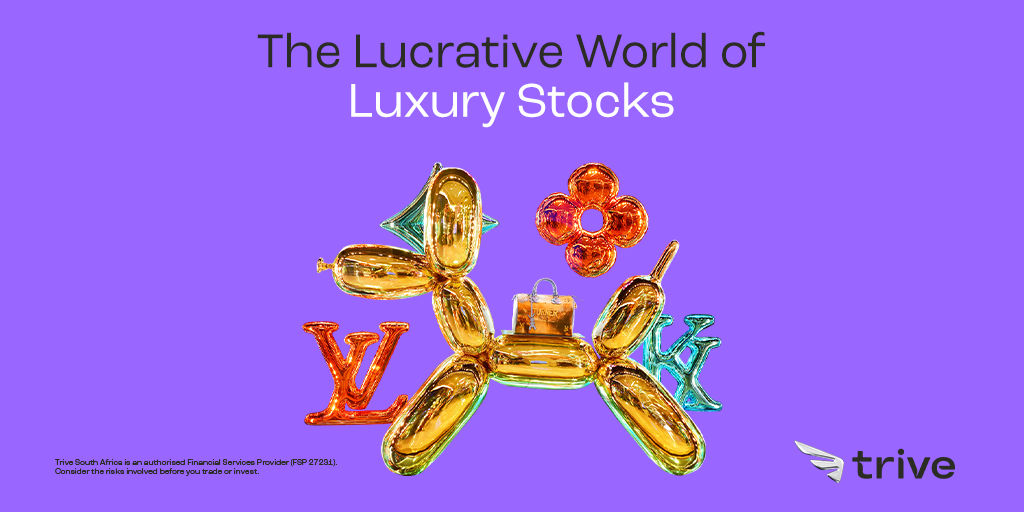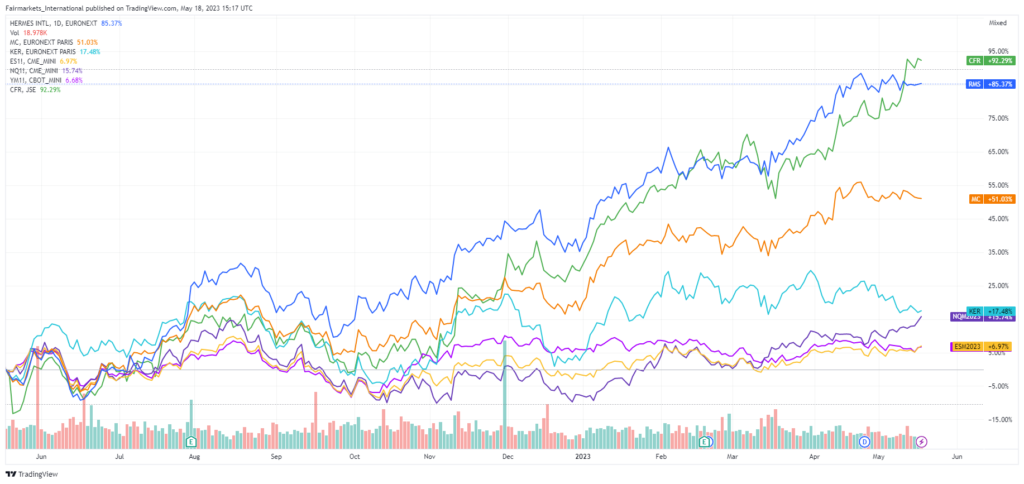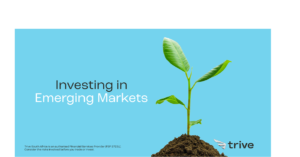
Step into the world of opulence and exclusivity as we embark on a captivating journey through the realm of luxury stocks. Like a hidden gem awaiting discovery, these stocks embody the allure and sophistication that captivate investors seeking both financial prosperity and a taste of the finer things in life.
Join us as we unravel the secrets behind luxury stocks, delving into their tantalising performance, market dynamics, and the captivating forces that shape this glamorous industry.
Understanding the Luxury Industry:
The luxury industry has witnessed significant growth and transformation in recent years, driven by rising affluence, changing consumer preferences, and globalisation. Luxury stocks, representing companies engaged in producing and distributing high-end goods and services, have attracted the attention of investors seeking to capitalise on the growing demand for luxury products.
Companies such as Hermès International (EPA: RMS), Compagnie Financiere Richemont S.A. (JSE: CFR), LVMH Moët Hennessy Louis Vuitton SE (EPA: MC), and Kering SA (EPA: KER) have firmly been at the forefront of this success, delivering solid returns for their shareholders.
Recent Trends and Performance:
The luxury industry has embraced technological innovations to enhance customer experiences, improve operations, and reach new markets. As represented by prominent French luxury brands, the sector has showcased impressive performance in recent years. Companies like Hermès, LVMH, and Richemont have outperformed broader market indices and demonstrated resilience during challenging economic conditions, including the recent COVID-19 pandemic, which had a profound impact on the luxury industry, disrupting supply chains, closing retail stores, and changing consumer behaviours. Factors contributing to their success include brand appeal, focusing on affluent consumers, and exposure to growing markets like China.
The picture below shows that the major players within the industry have recovered well from the pandemic and look to continue creating value for their investors while breaking new ground globally. Compagnie Financiere Richemont S.A. (green line), Hermès International S.A. (dark blue line), LVMH Moët Hennessy Louis Vuitton SE (orange line) and Kering SA (light blue line) 1-year share growth of 92.29%, 85.37%, 51.03% and 17.48%, respectively, outperformed the Nasdaq 100 Index (15.75%), S&P 500 Index (6.97%) and Dow Jones Industrial Index (6.37%) for the same period.

Emerging Markets, Geographical Trends and The Reopening Of The Chinese Economy.
Luxury brands are expanding their presence in emerging markets like China, India, and Southeast Asia. China’s reopening of the economy following the hard COVID lockdowns has been a blessing in disguise and has played a pivotal role in the luxury goods sector’s recent success. Chinese consumers’ demand for luxury products has surged, making China the most important market for European luxury brands. Removing zero-Covid restrictions in China has resulted in a sustained rebound in demand for luxury goods. Additionally, the price differentials between Europe and China have further incentivised Chinese consumers to purchase luxury goods abroad. As a result, French luxury brands with a strong presence in China, such as Hermès and LVMH, have reaped the benefits.
Inelastic Demand and Hedge Against Inflation:
Luxury goods are often considered relatively inelastic demand, meaning consumers are less sensitive to price changes. This characteristic provides stability to luxury brands, particularly during periods of inflation. Consequently, luxury goods are viewed as a potential hedge against inflation. Investors have recognised this aspect and have sought exposure to luxury stocks to diversify their portfolios and protect against potential inflationary pressures.
Future Outlook:
Looking ahead, the luxury goods sector is poised for continued growth. Several factors support this positive outlook:
- Growing Middle Class in Emerging Markets: The rise of the middle class in emerging markets, particularly in Asia, presents a significant opportunity for luxury brands. As disposable incomes increase, demand for luxury goods is likely to rise, expanding the consumer base for luxury brands.
- Digital Transformation: The luxury goods sector increasingly embraces digitalisation to engage with customers and expand its online presence. E-commerce platforms, social media, and digital marketing strategies are being utilised to reach a wider audience and enhance the customer experience.
- Sustainable Practices and Ethical Consumption: Consumers are becoming more conscious of sustainability and ethical practices. Luxury brands prioritising sustainability and incorporating responsible sourcing and production methods will likely gain a competitive edge and attract environmentally conscious consumers.
- Innovation and Exclusivity: Luxury brands thrive on exclusivity and innovation. Continued investment in research and development, craftsmanship, and unique designs will help brands maintain their appeal and differentiate themselves from competitors.
The luxury goods sector has recently demonstrated remarkable growth and resilience, with French luxury brands leading the way. The sector’s success can be attributed to factors such as Chinese demand, inelastic consumer behaviour, and the industry’s ability to adapt to changing market dynamics.
Looking ahead, the luxury goods sector is well-positioned for continued growth, driven by expanding emerging markets, digital transformation, sustainability practices, and focusing on exclusivity and innovation. Investors and consumers alike can expect the luxury goods sector to remain an enticing and rewarding investment opportunity in the foreseeable future.
Disclaimer: Trive South Africa (Pty) Ltd, Registration number 2005/011130/07, and an Authorised Financial Services Provider in terms of the Financial Advisory and Intermediary Services Act 2002 (FSP No. 27231). Any analysis/data/opinion contained herein are for informational purposes only and should not be considered advice or a recommendation to invest in any security. The content herein was created using proprietary strategies based on parameters that may include price, time, economic events, liquidity, risk, and macro and cyclical analysis. Securities involve a degree of risk and are volatile instruments. Market and economic conditions are subject to sudden change, which may have a material impact on the outcome of financial instruments and may not be suitable for all investors. When trading or investing in securities or alternative products, the value of the product can increase or decrease meaning your investment can increase or decrease in value. Past performance is not an indication of future performance. Trive South Africa (Pty) Ltd, and its employees assume no liability for any loss or damage (direct, indirect, consequential, or inconsequential) that may be suffered from using or relying on the information contained herein. Please consider the risks involved before you trade or invest.




